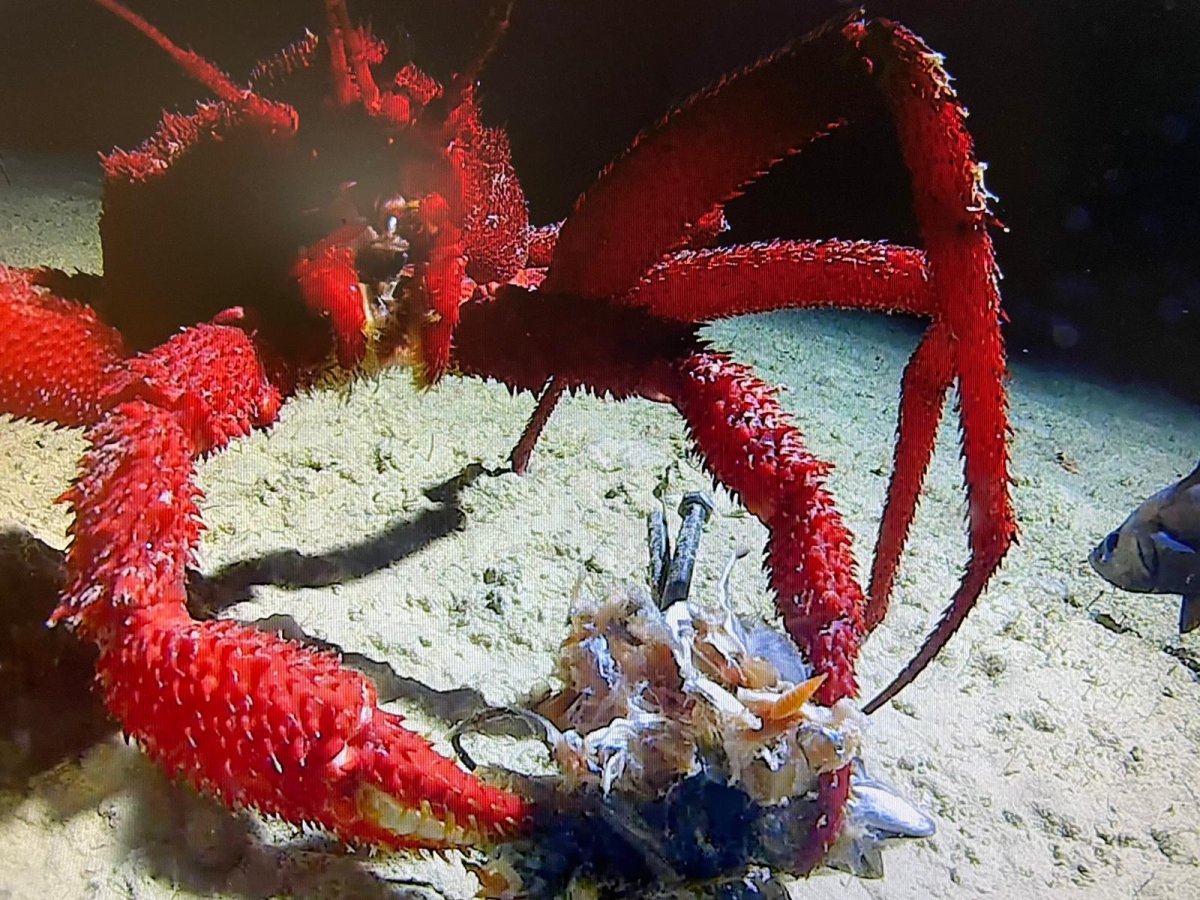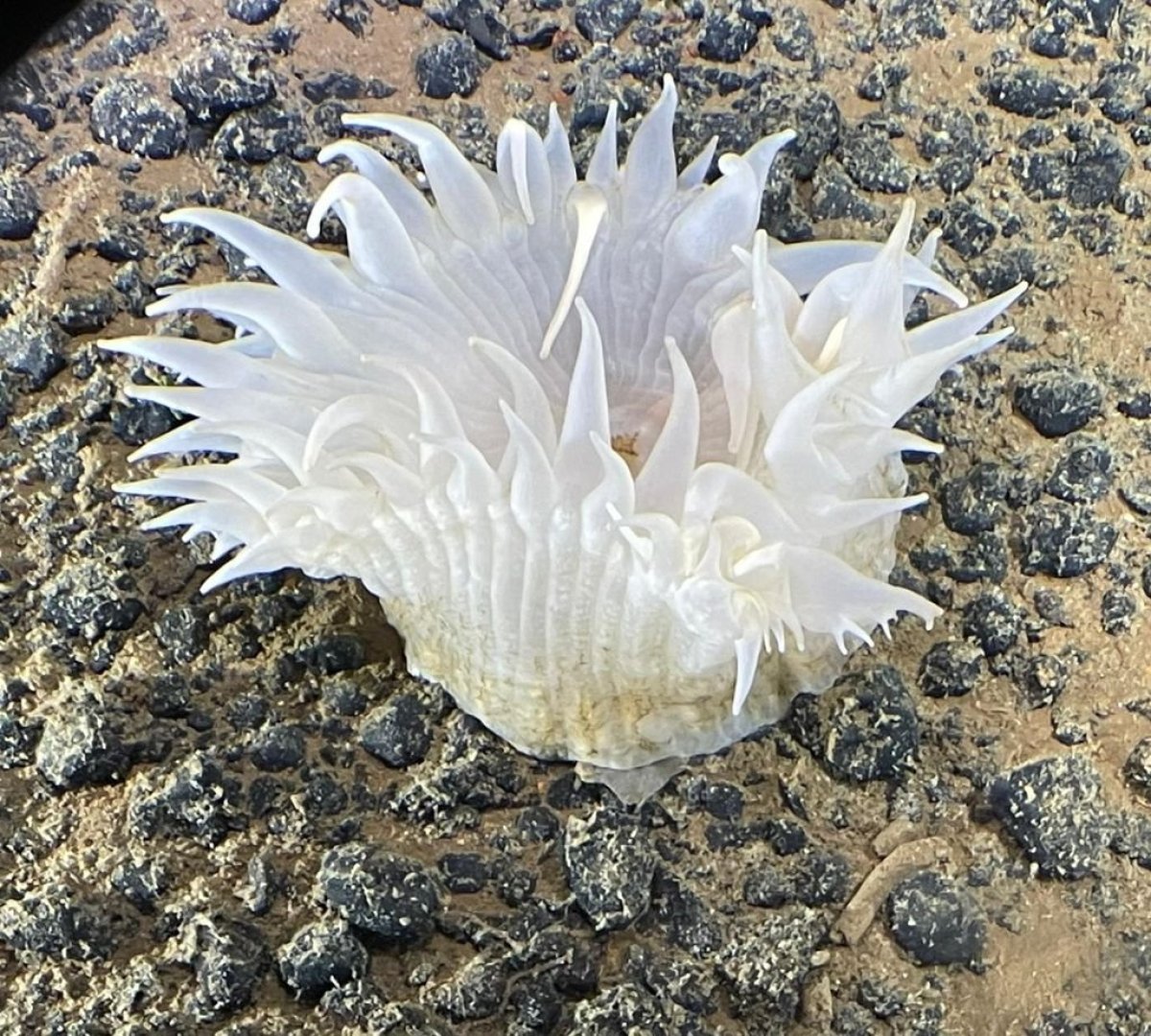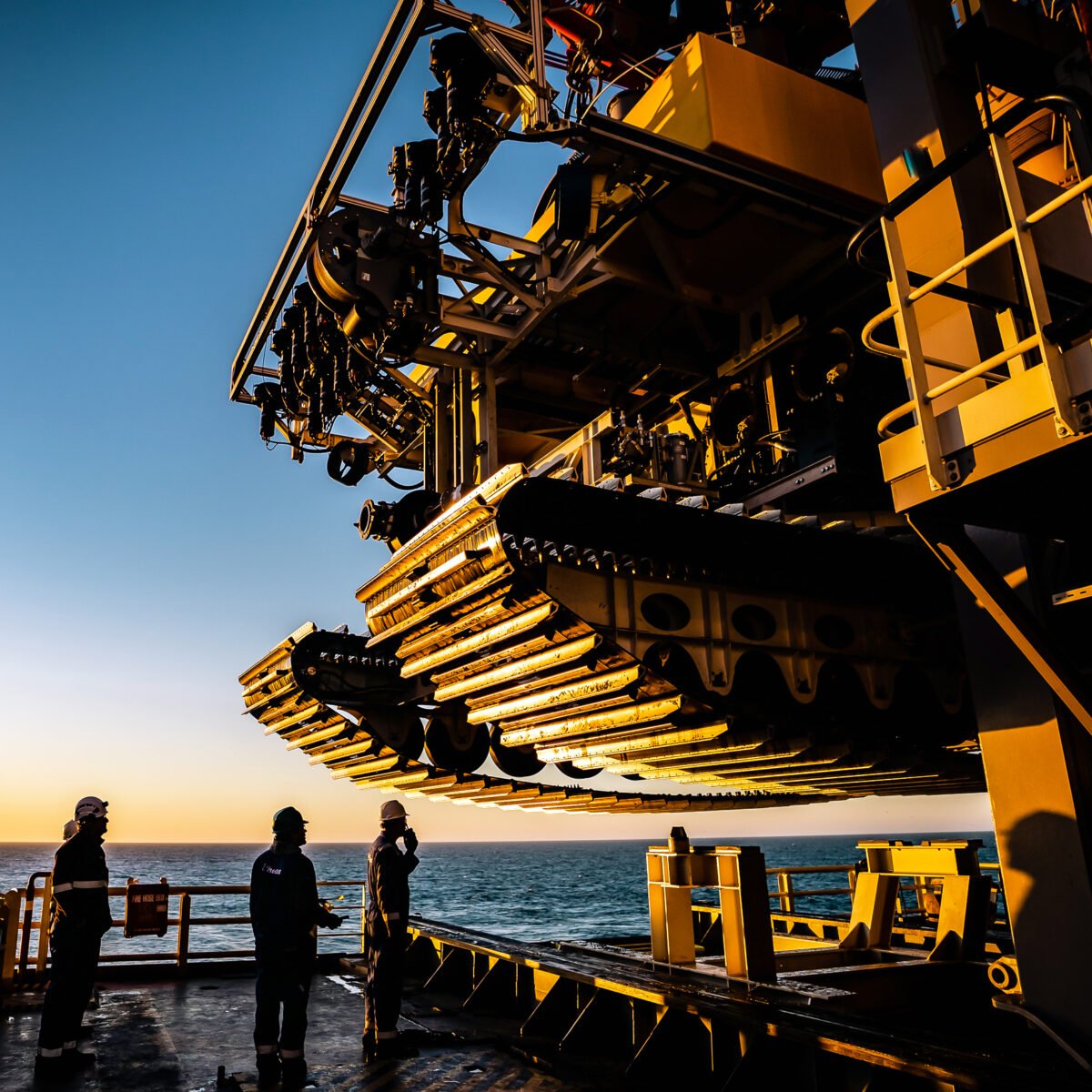President Donald Trump signed an executive order Thursday to promote mining of the deep-sea floor, a controversial way to get critical minerals that are used in a wide range of electronics and other products.
“Our nation must take immediate action to accelerate the responsible development of seabed mineral resources,” the order states.
Terrestrial mines and the processing facilities for many critical minerals are dominated by China, and the Trump administration is eager to develop alternatives. Large swathes of the deep-sea floor contain nodules of the critical minerals cobalt, copper, manganese and nickel.
“This is an exciting opportunity for the U.S.,” Gerard Baron, CEO of The Metals Company, told Newsweek. “It’s an amazing way of catching up from what is a very distant second place to China when it comes to critical minerals.”

Richard Baron/Courtesy of The Metals Company
The Canada-based company is seeking U.S. permits to mine the sea floor after expressing frustration with an international process on mining. A United Nations body, the International Seabed Authority, has been debating a set of standards for deep-sea mining intended to minimize harm to marine environments.
Brazilian oceanographer Leticia Carvalho has been Secretary General of the Seabed Authority since January. At a Washington D.C. conference on critical minerals this month, Carvalho emphasized that her organization is the only body legally authorized to regulate activity beyond national boundaries and that there was clear agreement among partner nations.
“No exploitation may commence until a regulatory framework is in place,” she said.
Baron said his company has spent millions of dollars on environmental assessments of their mining but has not seen progress on mining standards from the Seabed Authority.
“The system has been overtaken by environmental activists,” Baron complained.
The U.S. has never ratified the U.N. Convention on the Law of the Sea, and legislation from the 1990s established a national permitting framework for seabed mining.
Trump’s order calls on U.S. agencies to expedite seabed mineral permits “in areas beyond national jurisdiction,” essentially ignoring the international process and mining unilaterally.

Courtesy of Caladan Oceanic and the University of Western Australia
The order drew immediate condemnation from ocean conservation groups who say deep sea mining risks a fragile and barely explored environment.
“Areas of the U.S. seafloor where test mining took place over 50 years ago still haven’t fully recovered,” Jeff Watters, Ocean Conservancy’s vice president for external affairs, said in a statement. “The harm caused by deep-sea mining isn’t restricted to the ocean floor: it will impact the entire water column, top to bottom, and everyone and everything relying on it.”
Duncan Currie, international legal advisor to the Deep Sea Conservation Coalition, which represents more than 100 groups, warned that unilaterally mining in international waters would risk upsetting other fragile agreements on shipping and fishing on the high seas.
“To be taking a bulldozer through the Law of the Sea Convention would really be treated with enormous alarm by any country that has a need to rely on the ocean,” Currie told Newsweek.
Currie also questioned the economic rationale for seafloor mining.
“It’s a very shallow analysis of the issue,” he said. The main bottleneck to critical mineral supplies, he said, is the lack of a refining and processing infrastructure for the minerals, and pulling rocks from the depths will not change that.
Victor Vescovo, CEO of the investment company Caledon Capital, is a deep ocean explorer and one of the very few people to have visited the Challenger Deep, the deepest spot on Earth. Vescovo said he has deep doubts about the mining companies’ claims about their ability to operate profitably under such difficult conditions.
“I’ve operated heavy equipment below 4000 meters as much as anyone, and they are completely underestimating the absolute hellish and brutal nature of operating at those depths,” Vescovo told Newsweek. “It’s deeper than the Titanic. Nothing could be harder, except maybe going into space.”

Courtesy of Caladan Oceanic and the University of Western Australia
Minerals extracted from the seabed would not make a significant difference in the global supply, he argued, and many of the crucial rare earth minerals in shortest supply are not found in the deep-sea nodules.
“They treat deep sea mining as a cornucopia of critical metals, like it’s the solution to all of our metals problems,” he said. “It is nothing of the kind.”
Vescovo said deep sea expeditions frequently find previously unknown species, many with unique biochemistry and other properties that could yield important scientific and medical breakthroughs.
Mining not only produces deep scars on the sea floor and a plume of sediment in the water column, he said, it also removes the hard substrate that many organisms need as an anchor on the abyssal plain.
Baron, of The Metals Company, countered that damage from mining the sea floor must be balanced against the impacts of terrestrial mining. New mining and processing of nickel, for example, is now largely taking place in Indonesian rainforests, where it has become a leading cause of deforestation.
“We should carry out extractive industry in parts of the planet where there is the least life,” Baron said, “not the most life.”





